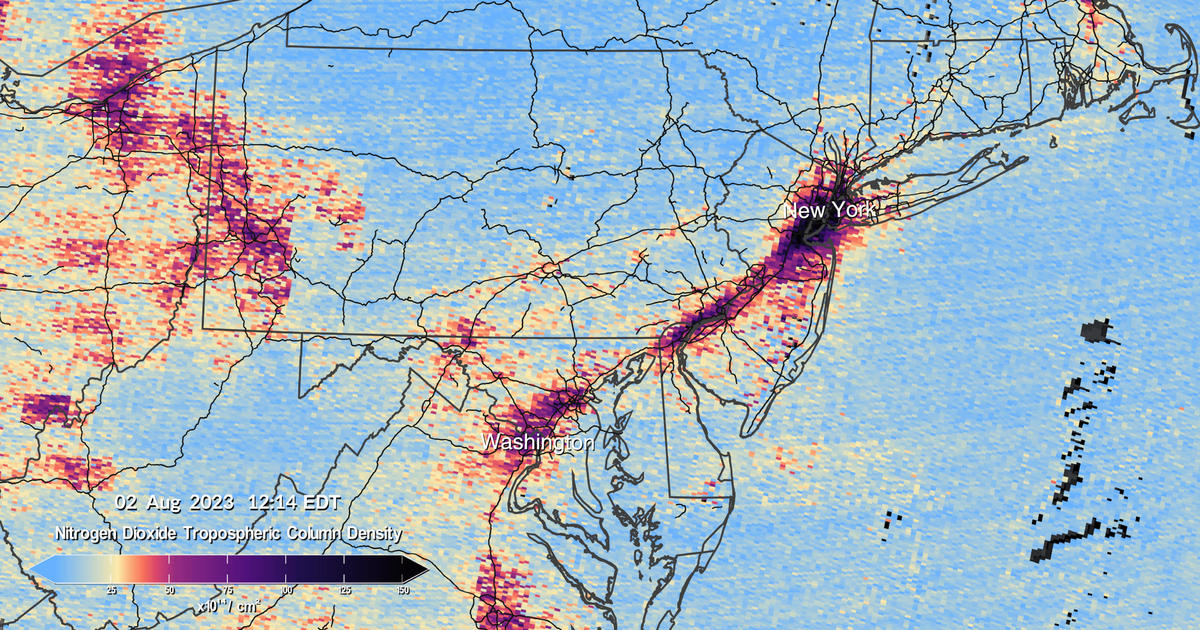
NASA releases first U.S. pollution map images from new instrument launched to space: "Game-changing data"
CBSN
NASA has released the first data maps from a new instrument monitoring air pollution from space. The visualizations show high levels of major pollutants like nitrogen dioxide — a reactive chemical usually produced when fossil fuels are burned for transportation, power generation and other industrial activities, as well as wildfires — in the atmosphere over parts of North America.
Those images, which NASA compiled into a time lapse video and published on Thursday, pinpointed several urban areas in the United States, Canada, Mexico and the Caribbean as hotspots for air pollution, particularly during certain times of day. The pollution maps "show high levels of nitrogen dioxide over cities in the morning, and enhanced levels of nitrogen dioxide over major highways," the agency explained in a news release. Pollution dissipated in those areas in the early afternoon before ramping up again later as cities experienced "their second rush hour of the day."
The data used to create NASA's new air pollution maps was collected on August 2. High concentrations of nitrogen dioxide were detected over a number of U.S. cities and their surrounding regions, including Dallas, Houston, New Orleans, New York, Philadelphia and Washington, D.C.

Washington — Kilmar Abrego Garcia, the Salvadoran man who was deported back to his home country and then returned to the U.S. for federal prosecution, is set to remain in jail for several more days as lawyers debate whether the Justice Department can stop him from being deported if he is released from federal custody pending his trial on human smuggling charges, according to The Associated Press.





















 Run 3 Space | Play Space Running Game
Run 3 Space | Play Space Running Game Traffic Jam 3D | Online Racing Game
Traffic Jam 3D | Online Racing Game Duck Hunt | Play Old Classic Game
Duck Hunt | Play Old Classic Game










